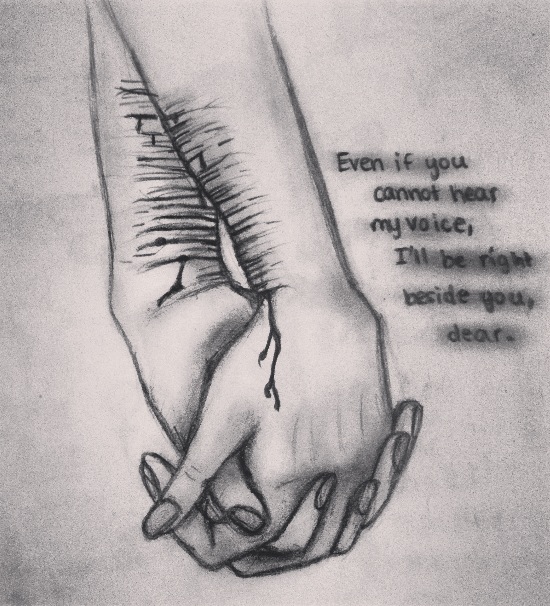The second group may realise something is wrong when they’re alone, but are doing what they’ve always done – going full speed, ignoring their own needs, and compartmentalising pain. It doesn’t seem strategic at all. The expectation to look and be perfect in others’ eyes, to not reveal vulnerability, to have sincere interest in others, but not allow others in, is second nature. Neither group can imagine life without the wall between themselves and others.
Where and how do both groups begin the journey of change? The first, more aware, group has insight into themselves, and may be more aware of how hiding is affecting them. Yet putting on that cheery face leads them to exhaustion and loneliness. Those feelings can become too heavy to bear, and the person with PHD realises they’re about to break. This awareness can lead to questions. ‘Do I really have to hide who I am? How did I learn this? When did it begin?’ When they start to put past and present together, they can work through the pain.
The first step for both groups is understanding what PHD is, and that they may experience it. To do this entails admitting some of their deeper, more painful feelings, a practice which can be both relieving and stressful. The second step is talking to someone they trust – a friend and/or a therapist. The third is confronting behaviors they’ve been repeating for years, which have served to insulate them from rejection, hurt, anger, or shame.
For example, when a friend asks how you are, instead of replying, ‘fine, thanks,’ you could say, ‘Actually, if you have some time later, I’d like to talk with you. I’d really appreciate it.’ When you start changing how you interact with yourself and others, you’re no longer living your life based on the childhood strategies you devised for protection. That wall can come down, slowly, brick by brick.
Putting a lot of responsibility on a child who’s naturally driven can set the stage for that child to believe that their drive, their ability to get a job done, is what people expect from them. It’s how they start to feel loved. It’s their place, their niche. You can carry that belief into adulthood, and live your life focused not on joy and vitality, but on getting tasks accomplished. To recognise that it’s too much, you have to stop the train, and admit the wreckage you’re creating. Maybe you drink too much to handle the stress. Maybe your relationship with your children, or your partner, is suffering. Maybe all you think about is how to get ahead, and you can’t enjoy the present, because you’re so focused on planning what you’re going to do next.
Taking on responsibility is a good thing, but not when it interferes with good self-care. People with PHD have convinced themselves that focusing on self is ‘selfish’. Their needs rarely, if ever, rise to the top of their list. That belief can be confronted, and someone with PHD can practice checking in with themselves – noting their desires and feelings, and acting on them. One other point: people with PHD will easily discount things that happened to them in their past. One patient told me, ‘I didn’t tell you I was raped, because I was drugged and I don’t remember it. I didn’t think it was all that important.’ It’s very possible that someone with PHD won’t label painful experiences as traumatic or bad, but will rationalise them away. Talking about their past honestly with a friend or a therapist can wake them up, as they begin to develop self-compassion.
If you have very high tolerance levels because of having to just ‘grin and bear it’ as a child and now you find yourself sticking with bad situations (a demeaning job, unhealthy relationship etc) for too long, what can you do about it? How can you start to recognise when you should step away from it?
Have you ever had someone tell you, as you walked by a steaming hot tub, ‘Come on in! The water’s not all that hot.’ You gingerly get in, and the water is scalding. But you accommodate, you ease in, and find yourself saying the same thing to other unsuspecting bathers.
Children learn what to believe about themselves and how love is expressed from their parents. In healthy families, that guidance is caring and supportive. In less healthy families, where you have to put a face on and pretend all is well, you learn to avoid what you’re actually experiencing. You become adept at not noticing your own discomfort or despair. Your parents don’t act as if those feelings are important, so you learn to hide them.
When abused, we are all unconsciously drawn to what is familiar. You can recreate the exact dynamic from your family, without recognising what you’re doing. You can begin to change your own expectations when you recognise that your parents’ message was wrong, and that the pain you felt as a child, and feel now, is real. The water is actually very hot, and you need to get out. You don’t have to accept the reality that you felt forced to accept as a child.
People with PHD can become aware of the multiplicity of emotions they actually have, and learn to feel them, rather than living as if the only acceptable response to pain is pretending it’s not there, and shutting it away tightly. Putting a good face on things can be a strength. It reflects resilience. Yet that cannot be the only response. Otherwise, a person with PHD will remain stuck in denial and never break the cycle that can set them free.




I really don’t believe a 13 year old wrote this